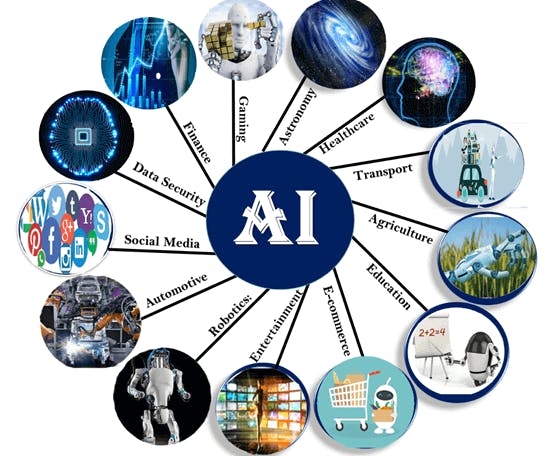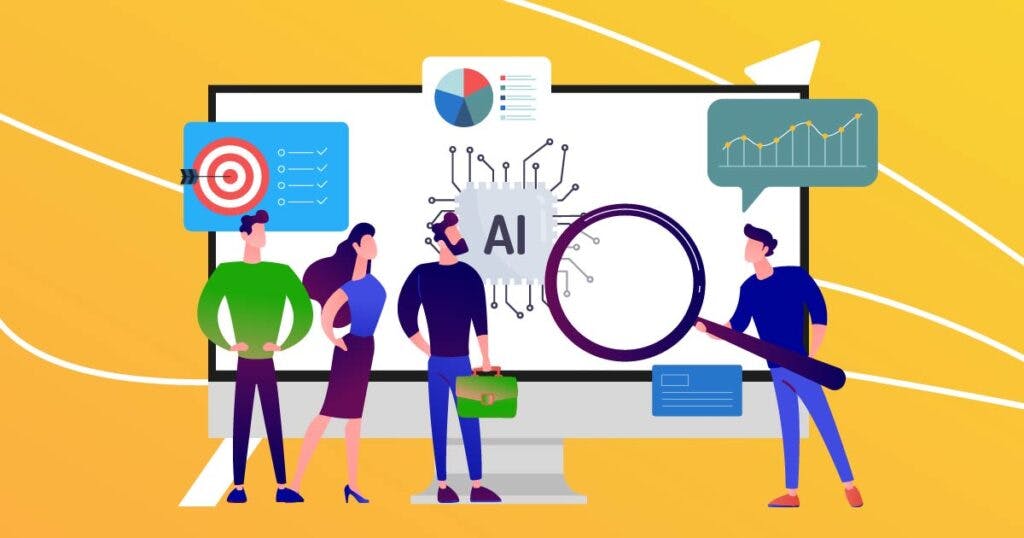
Photo by ZHENYU LUO on Unsplash
Exploring the Impact of Artificial Intelligence on Digital Transformation
Artificial Intelligence (AI) has emerged as a groundbreaking technology, revolutionizing various aspects of our lives. One area where AI is making significant strides is digital transformation. As organizations strive to stay competitive and meet the ever-evolving needs of their customers, AI technologies offer immense potential for driving digital transformation initiatives. In this blog, we will delve into the transformative impact of AI, explore its applications across different industries, and discuss the considerations and challenges involved in implementing AI in digital transformation efforts.
Overview of AI Technologies and Their Transformative Potential

Artificial Intelligence encompasses a wide range of technologies that simulate human intelligence and enable machines to learn, reason, and perform tasks with minimal human intervention. Some key AI technologies driving digital transformation include:
a) Machine Learning: ML algorithms enable systems to analyze vast amounts of data, recognize patterns, and make predictions or decisions. This technology has paved the way for intelligent automation, personalized recommendations, and predictive analytics, enhancing operational efficiency and customer experiences.
b) Natural Language Processing (NLP): NLP enables machines to understand and interpret human language, facilitating advanced text analysis, chatbots, voice assistants, and language translation services. NLP-driven applications streamline communication and enable more natural and efficient interactions with digital systems.
c) Computer Vision: Computer vision algorithms allow machines to interpret and understand visual data, enabling applications like facial recognition, object detection, and autonomous vehicles. Computer vision-based technologies are transforming industries such as healthcare, retail, and manufacturing.
d) Robotic Process Automation (RPA): RPA automates repetitive and rule-based tasks, freeing up human resources for more complex and value-added work. RPA is streamlining workflows, reducing errors, and increasing productivity in various industries.
The transformative potential of AI lies in its ability to automate processes, derive valuable insights from data, enhance decision-making capabilities, and create more personalized and engaging experiences for customers.
AI Applications across Different Industries for Driving Digital Transformation

a) Healthcare: AI is revolutionizing healthcare by improving diagnostics, personalized medicine, and patient care. Machine learning algorithms can analyze medical images, detect anomalies, and assist in early disease diagnosis. AI-powered chatbots and virtual assistants are providing round-the-clock healthcare support, reducing waiting times, and enhancing patient experiences.
b) Retail: AI technologies are reshaping the retail industry, enabling personalized recommendations, inventory optimization, and demand forecasting. Customer behaviour analysis using AI algorithms helps retailers understand preferences, improve targeting, and offer tailored shopping experiences. Additionally, AI-powered chatbots and virtual shopping assistants are enhancing customer service and driving sales.
c) Finance: AI is transforming the financial sector by automating manual processes, improving fraud detection, and enabling more accurate risk assessments. Machine learning algorithms analyze vast amounts of financial data to identify patterns and make real-time investment decisions. AI-powered chatbots are providing instant customer support, handle routine inquiries, and simplify transactions.
d) Manufacturing: AI technologies are optimizing manufacturing processes, reducing costs, and improving productivity. Machine learning algorithms analyze sensor data to detect anomalies, predict maintenance needs, and prevent breakdowns. AI-driven robotics and automation enhance efficiency, quality control, and safety on the factory floor.
These examples represent just a fraction of AI's impact across various industries, demonstrating its potential for driving digital transformation.
Considerations and Challenges in Implementing AI in Digital Transformation Initiatives

While AI offers immense potential, organizations must navigate certain considerations and challenges when implementing AI in digital transformation initiatives:
a) Data Quality and Availability: AI systems rely heavily on high-quality data. Organizations need to ensure data cleanliness, accessibility, and relevance for accurate AI-driven insights and decision-making.
b) Ethical and Privacy Concerns: AI applications must be developed and deployed with ethical considerations in mind. Ens
uring data privacy, transparency, and fairness in AI algorithms is crucial to maintain trust among users and stakeholders.
c) Skills and Talent Gap: Organizations need skilled professionals who understand AI technologies and can harness their potential effectively. Bridging the skills gap and providing adequate training are essential for successful AI implementation.
d) Integration with Existing Systems: Integrating AI technologies with legacy systems can be complex and challenging. Organizations need to carefully plan and execute integration strategies to ensure seamless collaboration between AI and existing digital infrastructure.
e) Regulation and Compliance: As AI becomes more pervasive, regulations around its use and ethical guidelines are evolving. Organizations must stay informed about legal and regulatory requirements to ensure compliance and avoid potential risks.
Conclusion
Artificial Intelligence is a game-changer when it comes to driving digital transformation. Its transformative potential, as seen through various industries, is reshaping the way organizations operate, interact with customers, and make decisions. However, implementing AI in digital transformation initiatives requires careful consideration of data quality, ethical concerns, talent acquisition, system integration, and compliance with evolving regulations. By navigating these considerations and addressing the challenges, organizations can unlock the full potential of AI and pave the way for a successful digital transformation journey.
Thank you 🙌🏻 for taking the time to read this blog. I hope that I was able to provide useful information and insights. If you have any further questions or concerns, please do not hesitate to ask in comments 👇🏻👇🏻

